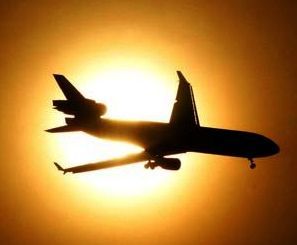 The civil aviation ministry has decided to allow airlines to charge a transaction fee but has insisted the amount be part of the airfare and not outside it.
The civil aviation ministry has decided to allow airlines to charge a transaction fee but has insisted the amount be part of the airfare and not outside it.
In his order last week, Civil Aviation Secretary K N Srivastava ruled the meanings of transaction fee, commission or convenience fee were the same -- payment of remuneration to an intermediary.
The order said all these were permissible, if shown as a part of the fare, and no sum was collected from consumers over this.
The order will allow airlines to follow dual pricing (differential fares) "Price differential can exist between a ticket purchased directly from an airline counter or their website or through its website and through an intermediary,'' the aviation secretary’s order said.
"It is an accepted principle that a passenger should be charged only for the services utilised.
“Therefore, if he has not availed the services of travel agents, it would not be appropriate to burden with the commission payable to travel agents.”
Last January, the Supreme Court had said a transaction
The Federation of Indian Airlines petitioned the high court here against the circular and it allowed the airline body to file an appeal with the aviation secretary.
Till it was banned by the apex court, airlines were collecting a transaction fee but this was not included as a part of the fare.
A ticket issued by a low-cost airline showed the transaction fee in a separate head.
The fee was collected and retained by travel agents. Air India’s and Jet Airways’ tickets referred to the transaction fee as ‘other charges’.
Travel agents have been charging a separate service fee outside of the ticket to make good the loss following the ban on a transaction fee.
The order clarified the DGCA could not decide on the amount of the commission which airlines should pay to agents and directed the regulator to monitor implementation.




.jpg)






